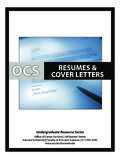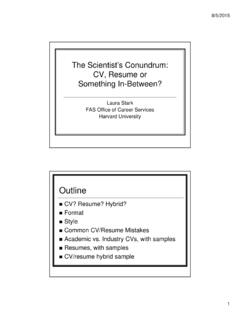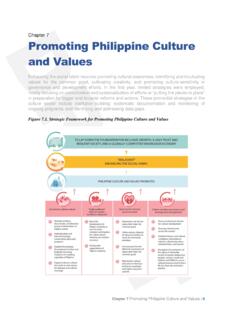Transcription of CVs and Cover Letters - Harvard University
1 OFFICE OF CAREER SERVICES GSAS: CVs and Cover Letters Harvard University Harvard College and Graduate School of arts and Sciences 54 Dunster Street Cambridge, MA 02138. Telephone: (617) 495-2595 GSAS: Graduate Student Information CVs and Cover Letters 2019 Harvard University All rights reserved. No part of this publication may be reproduced in any way without the express written permission of the Harvard University Faculty of arts & Sciences Office of Career Services. 8/19. Office of Career Services Harvard University Faculty of arts & Sciences Cambridge, MA 02138. Phone: (617) 495-2595. Getting Started with CVs and Cover Letters Every graduate student needs a curriculum vitae, or CV.
2 Your CV represents your accomplishments and experience as an academic and helps to establish your professional image. Well before you apply for faculty positions, you will use your CV to apply for fellowships and grants, to accompany submissions for publications or conference papers, when being considered for leadership roles or consulting projects, and more. CV's are also used when applying for some positions outside academia, such as in think tanks or research institutes, or for research positions in industry. As you progress through graduate school, you will, of course, add to your CV, but the basic areas to include are your contact information, education, research experience, teaching experience, publications, presentations, honors and awards, and contact information for your references, or those people willing to speak or write on your behalf.
3 Some formatting pointers: There is no single best format. Refer to samples for ideas, but craft your CV to best reflect you and your unique accomplishments. Unlike a resume, there is no page limit, but most graduate students' CVs are two to five pages in length. Your CV may get no more than thirty seconds of the reader's attention, so ensure the most important information stands out. Keep it concise and relevant! Be strategic in how you order and entitle your categories. The most important information should be on the first page. Within each category, list items in reverse chronological order. Category headings influence how readers perceive you. For example, the same experience could belong in a category entitled: Service to the Field, Conferences Organized, or Relevant Professional Experience.
4 Use active verbs and sentence fragments (not full sentences) to describe your experiences. Avoid pronouns ( I, me), and minimize articles (a, and, the). Use a level of jargon most appropriate for your audience. Keep locations, dates and less important information on the right side of the page the left side should have important details like University , degree, job title, etc. Stick to a common font, such as Times New Roman, using a font size of 10 to 12 point. Use highlighting judiciously, favoring bold, ALL CAPS, and white space to create a crisp professional style. Avoid text boxes, underlining, and shading; italics may be used in moderation. Margins should be equal on all four sides, and be to 1 inch in size.
5 And most importantly Follow the conventions of your field! Different academic disciplines have different standards and expectations, especially in the order of categories. Check out CVs from recent graduates of your department, and others in your field, to ensure you are following your field's norms. Tailor your CV to the position, purpose, or audience Why should we select YOU? That is the question on the top of your reader's mind, so craft your CV. to convince the reader that you have the skills, experience, and knowledge they seek. Depending on the purpose, you might place more or less emphasis on your teaching experience, for example. Also, keep an archival CV (for your eyes only!)
6 That lists all the details of everything you've done tailor from there. 1. Describe Your Experiences with these Action Verbs Achievement Administrative Communication Creative Financial accelerated arranged addressed authored allocated accomplished channeled arbitrated changed analyzed achieved charted articulated conceived appraised activated collated briefed constructed audited attained collected communicated created balanced competed coordinated conducted developed budgeted earned dispensed contacted devised calculated effected distributed conveyed drafted compiled elicited established corresponded established computed executed executed delivered formulated controlled exercised implemented demonstrated founded disbursed expanded installed
7 Edited illustrated estimated expedited maintained entertained influenced figured generated offered interviewed introduced financed improved ordered informed invented forecasted increased outlined lectured launched projected insured performed mediated originated reconciled marketed prepared negotiated revamped tabulated mastered processed persuaded revised obtained provided presented staged Technical produced purchased promoted updated adapted reduced recorded proposed visualized adjusted reorganized rendered publicized applied reproduced served reported built restructured serviced represented computed simplified sourced responded Research/Analytical constructed sold supported suggested assessed designed solicited translated compared diagnosed streamlined Lead/Manage wrote critiqued engineered succeeded acquired defined experimented upgraded administered derived maintained approved Plan/Organize detected modified assigned allocated determined operated Help/Teach chaired anticipated discovered prescribed advised contracted arranged evaluated programmed clarified controlled catalogued examined proved coached decided categorized explored reinforced collaborated delegated classified found repaired consulted directed collected inspected resolved counseled enlisted consolidated interpreted restored educated governed convened investigated
8 Solved explained handled edited located specified facilitated initiated eliminated measured systematized guided instilled employed observed tested helped instituted gathered predicted united instructed managed grouped rated modeled motivated monitored recommended participated presided organized researched taught recruited planned reviewed trained retained regulated searched tutored reviewed scheduled studied selected structured surveyed shaped summarized verified supervised targeted 2. Scholars whose work relates to art, music, architecture, etc. often have experience with museum exhibitions, musical performances, etc. Benjamin, as a graduate student studying the built environment, included exhibitions that he contributed to, as well as professional architectural and curatorial experience, as they are relevant to his field.
9 Benjamin presents his research and teaching interests in one category. He could have chosen to use two categories: RESEARCH INTERESTS, listing specific areas of his scholarly expertise, and TEACHING INTERESTS, with relevant general topics, to show the breadth of teaching areas. Benjamin landed a tenure-track position at a research University . BENJAMIN F. GOLDFARB. 617-987-0000 EDUCATION. Harvard University , Cambridge, MA. PhD, Architecture, Landscape Architecture, and Urban Planning, expected May 2019. Dissertation: A City Within a City: Community Development and the Struggle Over Harlem, 1961-2001.. Committee: Profs. Priya Kapoor, Alexi Kovalev, Sunan Demir, and LeVaughn King.
10 Harvard College, Cambridge, MA. BA, summa cum laude, Visual and Environmental Studies, Phi Beta Kappa, June 2010. Thesis: Learning from Laurel Homes: The Social Role of Architectural Meaning in American Public Housing.. Advisor: Professor Ericka Popescu. RESEARCH AND TEACHING INTERESTS. Social, cultural , and political history of the American built environment Twentieth-century United States history History and theory of modern architecture and planning History of African-American urbanization Race and the design professions American urban policy Social movements Community-based organizations PUBLICATIONS. Governing at the Tipping Point: Economic Development (with Michael O'Neil), John Lindsay's New York, ed.



